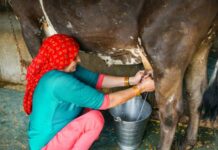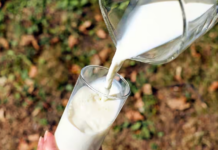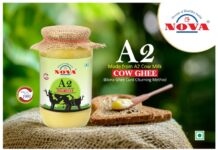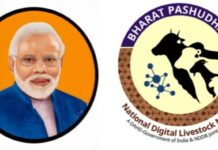New Delhi, September 26, 2024: The Tirumala Tirupati Devasthanam (TTD) has appointed ‘Nandini’ as the new ghee supplier, with the supply order already issued to the company. The Andhra Pradesh government took this action amid controversy over the alleged adulteration of laddus at the Tirupati temple, following claims of the use of animal fat and other substances.
Nandini: A popular household name in South India‘Nandini’ is a well-known brand in South India, similar to the popularity of Amul and Mother Dairy products in North India. It is Karnataka’s biggest milk brand and is also recognised in neighbouring states like Andhra Pradesh, Tamil Nadu, Kerala, Maharashtra, and Goa. The ‘Nandini’ brand is owned by the Karnataka Cooperative Milk Producers’ Federation Limited (KMF), the second-largest dairy cooperative in India, after Gujarat’s Amul.
Leadership at KMF The current managing director and CEO of KMF is Karnataka administrative service officer MK Jagdish.
The origins of Karnataka Milk Federation (KMF)KMF’s history dates back to 1955, when the first dairy cooperative was established in the Kodagu district of Karnataka. At that time, there was no system of packaged milk, and farmers delivered milk directly to households. There was also a shortage of milk. It wasn’t until the 1970s, during India’s ‘White Revolution,’ that efforts to increase milk production took hold, supported by World Bank projects according to the reports published in timesofindia.indiatimes.com.
In 1974, the Karnataka government created the Karnataka Dairy Development Corporation (KDCC) to implement these dairy projects. By 1984, KDCC was renamed the Karnataka Milk Federation, and it began selling packaged milk and other products under the brand name ‘Nandini.’ Over time, ‘Nandini’ grew into Karnataka’s most popular dairy brand and expanded to neighbouring states.
How KMF functions today
KMF operates 15 dairy unions throughout Karnataka, including the Bengaluru, Kolar, and Mysore Cooperative Milk Unions. These unions buy milk from village-level Dairy Cooperative Societies (DCS) and deliver it to KMF for processing. According to the Karnataka Milk Federation’s website, KMF purchases over 86 lakh kilos of milk daily from 26 lakh farmers in 24,000 villages.
One of KMF’s standout features is its daily payment system for milk suppliers, who are mainly small farmers and producers. The federation distributes more than Rs 28 crore in daily payments. KMF has 15 units that process and package milk, which is then sold through various channels.

























